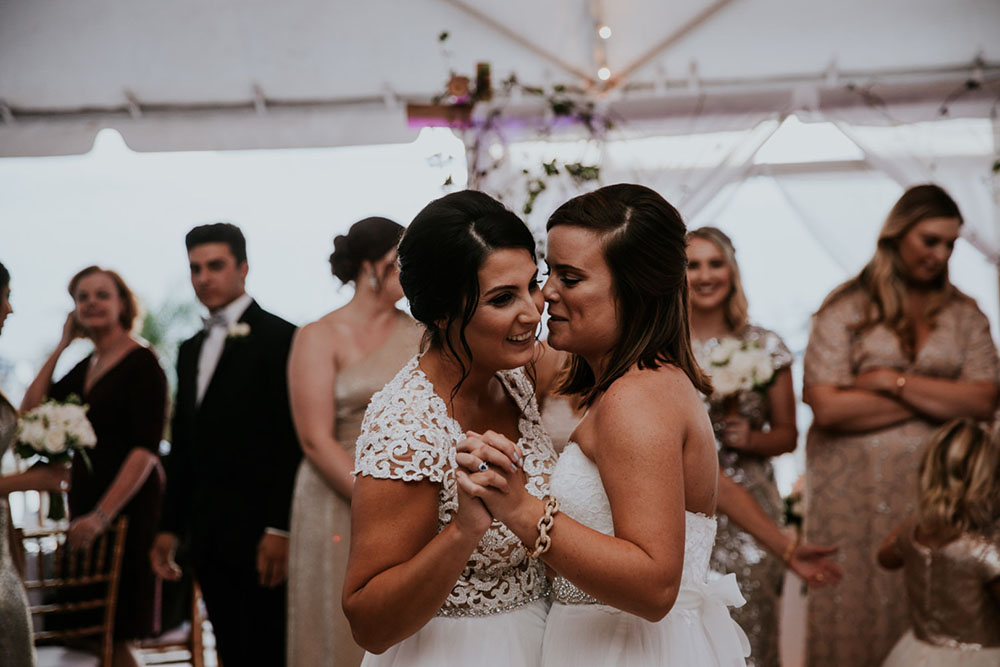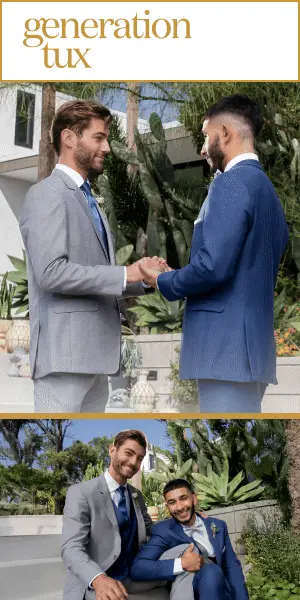The wedding planning process can be stressful for LGBTQ+ clients—we have to deal with the continual process and potential trauma of coming out to our prospective wedding vendors on top of actually planning a wedding. To make it easier on LGBTQ+ clients, here are a few things all wedding vendors should be doing. To learn how to fully be LGBTQ+ inclusive in your wedding business, visit equallywedpro.com, where you can earn your CIP (certified inclusive professional) credential.
Treat customers with respect from the beginning.
This should go without saying, but treat your customers with respect. Full stop.
Ask people what their pronouns are and how they identify instead of assuming.
We live in a culture where we’re socialized to routinely assign people to genders and pronouns without asking. Disrupt that by giving your clients the opportunity to confirm their names, pronouns, and any other identifiers they’d like with you. Don’t guess what someone’s pronouns are without asking, and don’t assume things about their identity (like saying “lesbian couple” unless you’re certain).
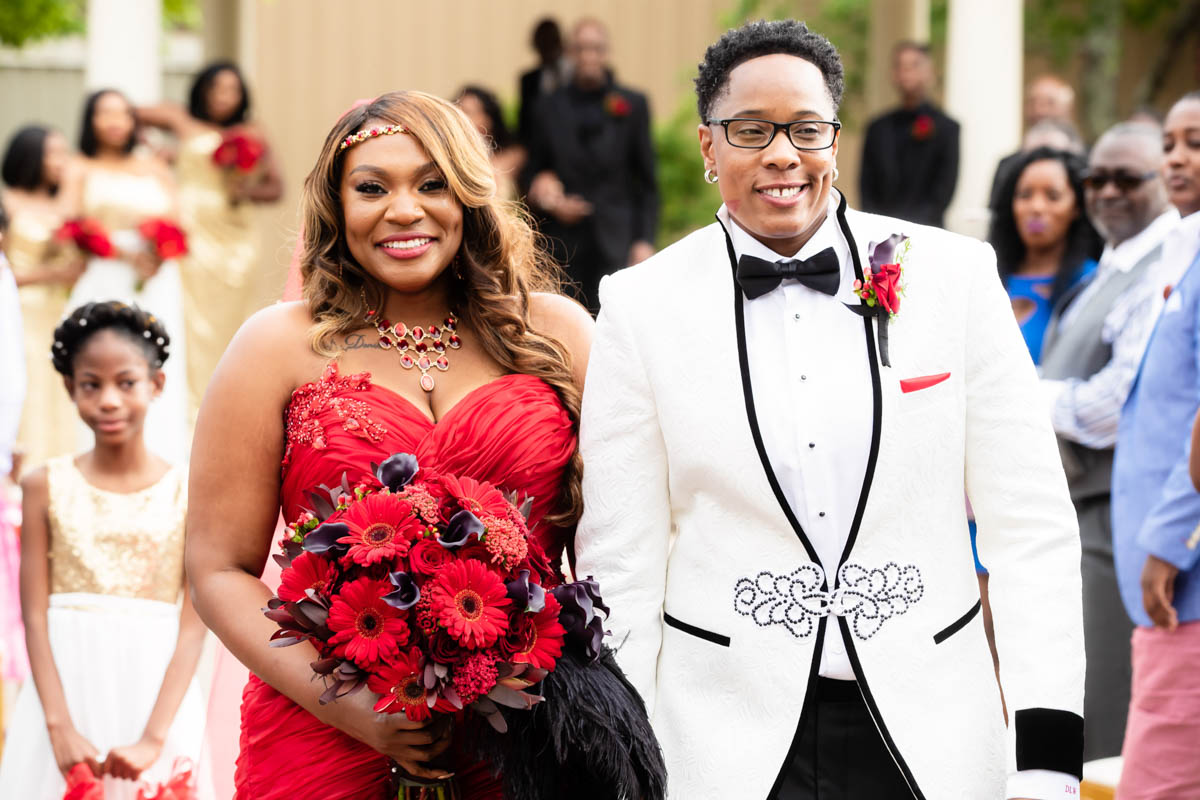
Give LGBTQ+ relationships the same weight as you would a non-queer relationship.
The wedding planning process can already be difficult for LGBTQ+ couples, who may be dealing with family and friends who don’t respect their relationship or give it the same respect or attention. Change the narrative by treating LGBTQ+ relationships the same way you would a non-queer relationship. Don’t assume (or joke about!) how things are easier, how great it must be to spend the rest of your life with “your best friend,” or, seriously, tell us that you wish you were gay so you could avoid men too.
Don’t make your customers explain their relationship or answer invasive questions.
LGBTQ+ couples are automatically put in a position where they will have to “come out” over and over during the wedding planning process, sometimes because a vendor made an incorrect assumption. “Each new person you meet could potentially lead to a situation where you have to disclose, and it doesn’t necessarily get easier each time,” says Alexandra Hoffman, MSW, Coordinator of Core Competence at Yellowbrick.
Instead, you can stick to asking the same questions you would of any other couple, like how long the pair have been together, what their preferences are, whether they have a wedding theme, and what they’re looking for from a wedding vendor.
Be aware that your customers might be sensitive to signs that you’re judging them.
For good reason, LGBTQ+ clients may be wary of discrimination and bigotry. Remember that this isn’t just about what you can provide for the wedding—it’s about people who need to know that you and your business are safe and a welcoming environment.
Kate Murphy, LMSW, from the Pathway Center for Psychotherapy, suggests “warm, genuine interest, and first-rate service.”
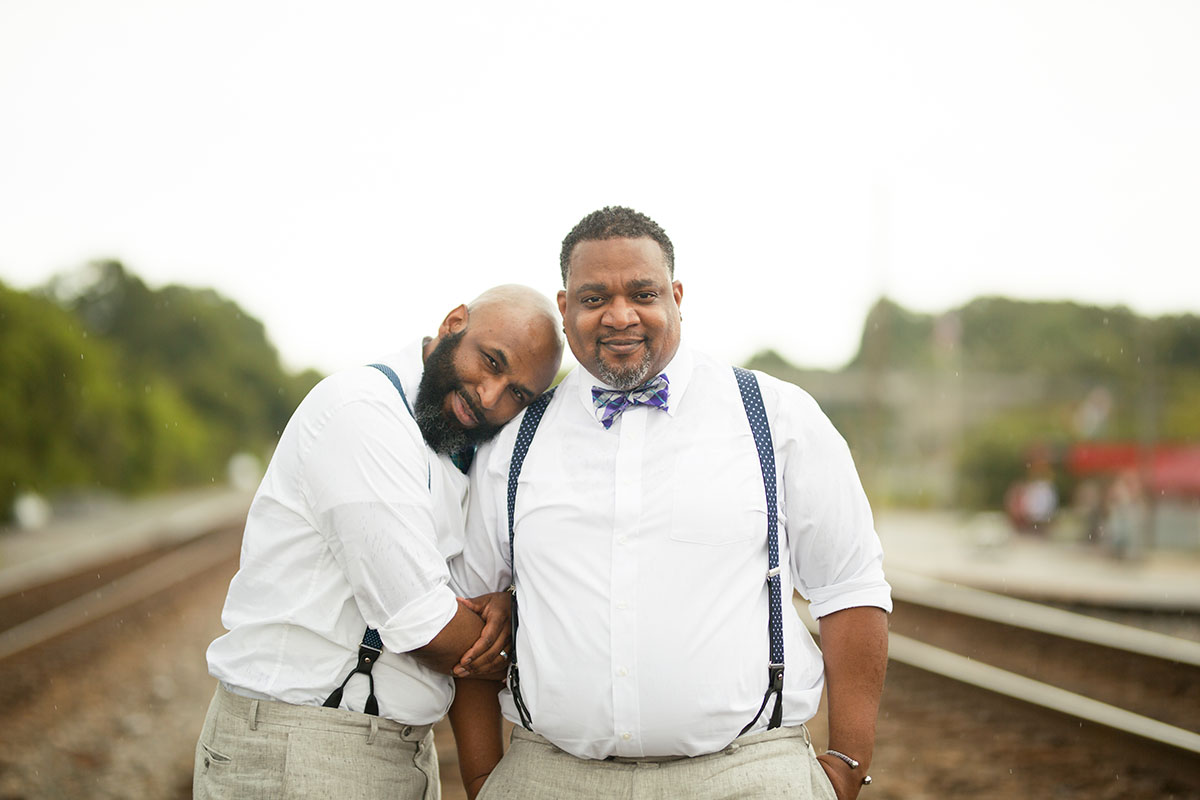
Show that you’re LGBTQ-friendly publicly anywhere you can—on your website, on social media, in your physical storefront.
“For the last few years in business, I have had the Human Rights Campaign marriage equality badge displayed on my website in multiple pages, including the footer,” says wedding photographer Ryan Inman. “I have many emails stating this as the main reason for reaching out to me—because the potential client felt comfortable with me.”
You could sign up to become an Equally Wed preferred vendor, display photos of LGBTQ+ clients and weddings on your Instagram, or even hang up signs in a physical storefront that let clients know you’re an LGBTQ-friendly space. Include pictures of LGBTQ+ couples on your website, social media, and in marketing materials—this not only shows that you’re happy to work with LGBTQ+ clients, but it also gives prospective customers an idea of your past work and what you can bring to the table.
Stay aware of any internalized homophobia or transphobia.
We’re all raised in a society that teaches us to be homophobic and transphobic, and you may not even see it. Be aware of your internalized biases and any stereotypes you may believe, and listen carefully to your language. Do you ever make assumptions about someone’s gender or sexual orientation? Do you use asexual-inclusive language? Is your space welcoming of non-binary and genderqueer clients, or are you constantly posting about “brides” and “grooms”? It’s always possible to improve, and your clients will thank you for it.
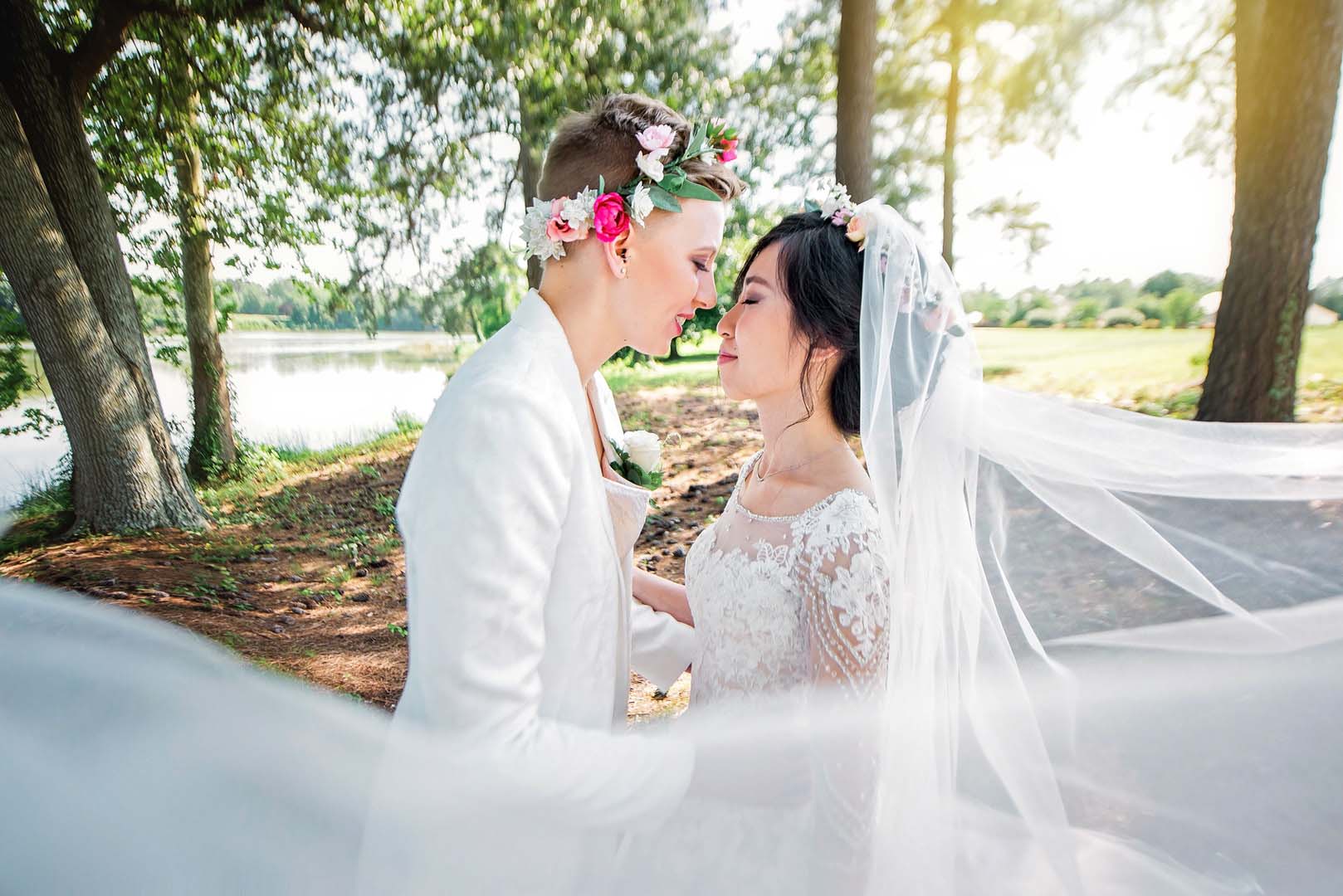
Be available as a support system to your customers.
This obviously depends on your relationship with a client and it’s most important to be professional, but there are some situations where your clients may just want a bit of advice or someone to vent to. The wedding planning process is hard, and no one understands that more than a vendor.
Advertise on LGBTQ+ wedding magazines and websites.
If you want to reach the LGBTQ+ community and show us that you’re excited to work with us and have us as your clients, meet us where we already are—in queer media! Advertise and partner with LGBTQ+ wedding magazines and websites, or in general queer and trans publications and media.
Fin Leary
MOST VIEWED STORIES
- A Guide to Writing Nontraditional, Inclusive Wedding Vows
- A Stylish, Heartfelt Celebration in Munich: Bastian & Marc’s Modern Fall Wedding
- How to choose your wedding suit or tuxedo
- The Rise of Weddings With Long-Lasting Investments: Benefits Beyond The Big Day
- How to have a green wedding that Mother Earth would attend



